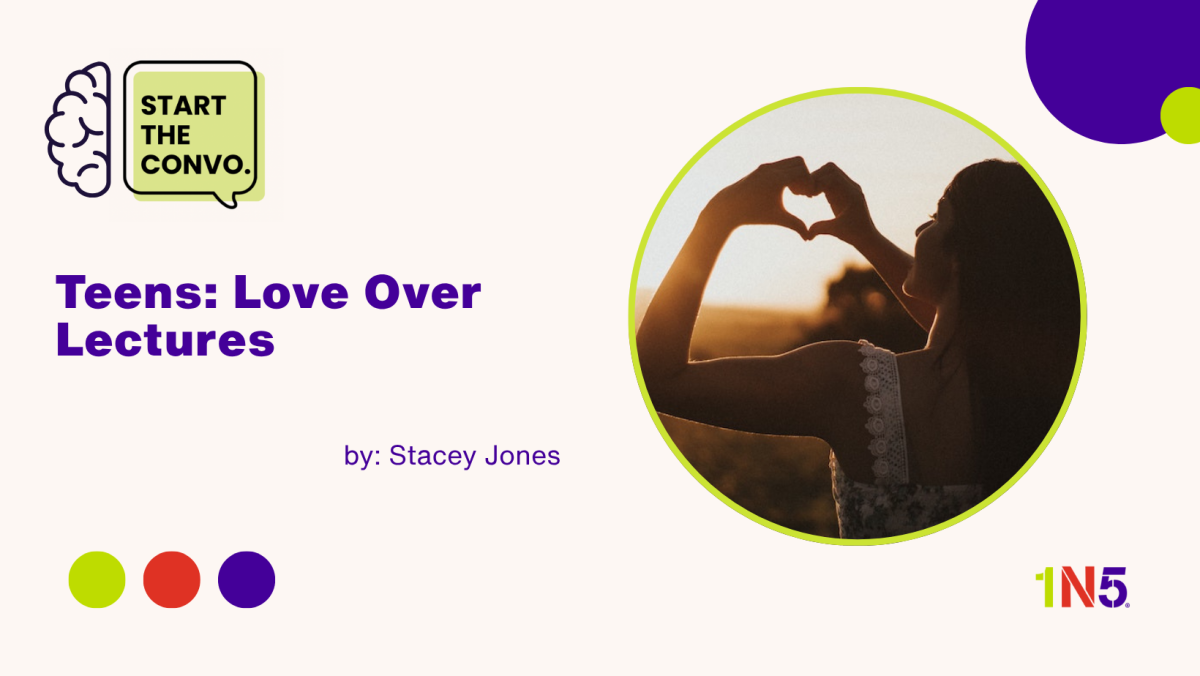Today’s teenagers have a lot going on, yet they are often blamed for their attitude, behavior, selfishness, and for constantly being on their phones. As a high school teacher, I had a front row seat with teens and often found that they felt misunderstood, unheard, and weighed down with pressure to hold it all together. In fact, I noticed that they were highly engaged when topics of mental health were part of the curriculum and that they were hungry for the chance to be heard. While some teachers felt uncomfortable discussing such tough topics, I found myself embracing them so as to allow a safe space where students could share, listen, debate, and delve into some of the hardships they were facing.
Several teens started showing up before or after school to talk about deeper, heavier topics. A few students even begged to have lunch in the classroom to separate from cafeteria drama. Many reached out via school messaging to privately share concerns or ask for help. And so I started wondering: have we as adults been lecturing today’s teenagers so much that we have forgotten to love them properly? Are we even listening when they speak? What about our own attitudes at the grocery store, our rude behavior towards those who think differently from us, our selfish actions when children’s activities overtake our personal priorities, and our own attachment to our phones? If we want our teens to do better, we must be better role models. Here are some small ways you can make a big impact in your teen’s world:
1. Engage with them about the little things over time. Favorite athlete update? The latest trends in music or lingo? And what the heck is 6-7? Hone in on what brings them joy and let them see that you care about their world.
2. Actively listen to what they have to say. Often, we say we’re listening and then merely respond with our own story or reason why they might be dramatic. The challenge is to close our mouths as listeners and let them speak. Allow for uncomfortable silence. Odds are they will eventually speak and keep going if we allow it.
3. Let go of the reins a bit. Trust that they can get to a friend’s house safely when driving without tracking their every move. Let them make a poor life choice so that they can learn a bit about consequences and resilience firsthand.
4. Put your phone down or away. Students were always surprised to find out that I put my phone in a desk drawer so that I wasn’t sidetracked by it. Not always, but more often than not, this omitted the concern of phones in the classroom. Be the example.
5. Be or help them find a trusted adult. This one’s tough because parents often want to be the trusted adult or hold hope in teenage friends to help through these challenging years, but every teen needs a trusted adult at home and at school. This could be a coach, a teacher, a neighbor, or a family friend.
6. Be silly with them. Play is so important for the brain, yet high schools often lack recess and other forms of play during the day. Find a way to be silly with your teen in a way that allows them to play. I’ve used Jenga, puzzles, charades, memes, and Just Dance in the classroom, but you might also consider video games, concerts, or a simple rock-paper-scissors challenge with your teen.
Not all teenagers will react to these suggestions, of course, but can it hurt if we try to model healthy mental skills and ways to build better relationships with them? When it comes to our teens, let’s provide love over lectures.

